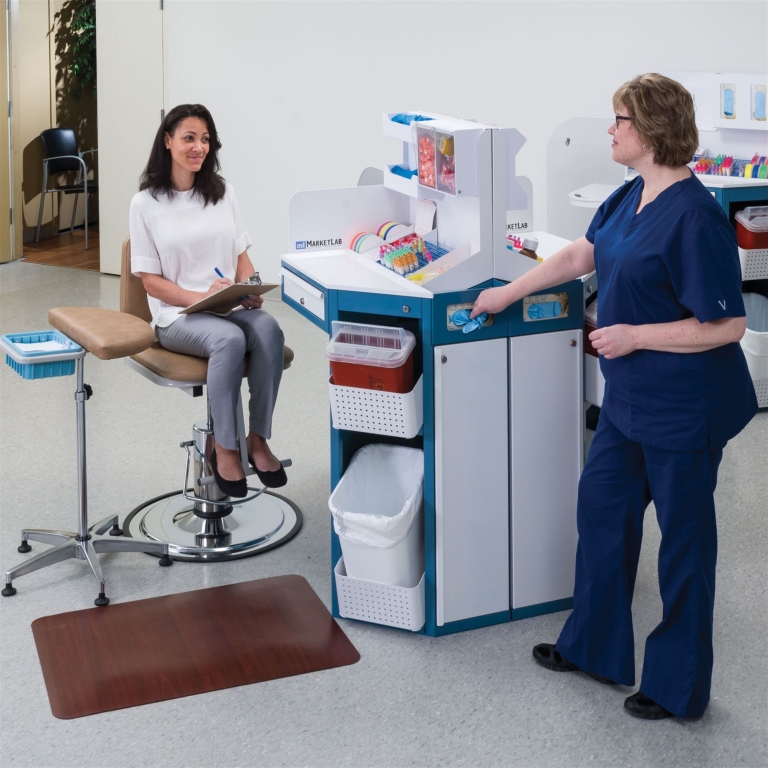Master the Art of Drawing Blood: A Step-by-Step Guide on How to Become a Phlebotomy Technician
Are you interested in a career in the healthcare field that allows you to work directly with patients and make a difference in their lives? If so, becoming a phlebotomy technician might be the perfect path for you. Phlebotomy technicians are trained professionals who specialize in drawing blood from patients for various medical tests, transfusions, donations, or research purposes. In this step-by-step guide, we will explore what it takes to become a phlebotomy technician and master the art of drawing blood.
What is a Phlebotomy Technician?
A phlebotomy technician, also known as a phlebotomist, is a healthcare professional who is trained to draw blood from patients for various purposes. They work in hospitals, clinics, blood donation centers, diagnostic laboratories, and other healthcare settings. Phlebotomy technicians play a crucial role in the healthcare field by ensuring that blood samples are collected correctly and safely for medical testing and research. In addition to drawing blood, they are also responsible for labeling and storing blood samples properly.
Benefits of Becoming a Phlebotomy Technician
There are several benefits to pursuing a career as a phlebotomy technician, including:
- High demand: Phlebotomy technicians are in high demand in the healthcare industry, with job growth projected to increase by 17% from 2019 to 2029 according to the Bureau of Labor Statistics.
- Job stability: Phlebotomy is an essential aspect of healthcare, which means that there will always be a need for phlebotomy technicians.
- Quick training: Becoming a phlebotomy technician typically requires less time and money compared to other healthcare professions.
- Direct patient care: Phlebotomy technicians have direct interaction with patients, which can be rewarding for those who enjoy helping others.
Steps to Become a Phlebotomy Technician
Step 1: Obtain a High School Diploma or GED
The first step to becoming a phlebotomy technician is to complete your high school diploma or GED. A strong foundation in science and math can be beneficial for this career.
Step 2: Enroll in a Phlebotomy Training Program
Next, you will need to enroll in a phlebotomy training program. These programs are typically offered by community colleges, vocational schools, and healthcare facilities. The training will include both classroom instruction and hands-on experience.
Step 3: Gain Hands-On Experience
During your training program, you will have the opportunity to practice drawing blood on mannequins and real patients under the supervision of experienced instructors. This hands-on experience is crucial for mastering the art of drawing blood.
Step 4: Obtain Certification
While certification is not always required to work as a phlebotomy technician, it can increase your job opportunities and earning potential. You can obtain certification through organizations such as the American Society for Clinical Pathology (ASCP) or the National Healthcareer Association (NHA).
Step 5: Find a Job
Once you have completed your training and obtained certification, you can begin applying for phlebotomy technician positions in hospitals, clinics, laboratories, and other healthcare settings. Networking with professionals in the field can also help you find job opportunities.
Practical Tips for Phlebotomy Technicians
Here are some practical tips for phlebotomy technicians to excel in their careers:
- Always greet patients with a smile and maintain a professional demeanor.
- Ensure that the equipment is sterile and that proper infection control procedures are followed.
- Communicate clearly with patients and explain the blood drawing process to alleviate their fears.
- Practice good time management to ensure that all blood draws are completed efficiently and accurately.
Case Study: A Day in the Life of a Phlebotomy Technician
Let’s take a look at a typical day in the life of a phlebotomy technician:
| Date | Tasks |
|---|---|
| 8:00 am | Review patient schedules and prepare phlebotomy equipment. |
| 9:00 am | Begin drawing blood from patients, following proper procedures. |
| 12:00 pm | Take a break and restock supplies. |
| 1:00 pm | Continue drawing blood and documenting patient information. |
| 4:00 pm | Clean and sanitize work area before the end of the shift. |
Conclusion
Becoming a phlebotomy technician is a rewarding career path for individuals who are interested in healthcare and enjoy working directly with patients. By following the steps outlined in this guide and practicing the art of drawing blood, you can become a skilled phlebotomy technician and make a positive impact in the healthcare field.
Remember, mastering the art of drawing blood takes practice, patience, and dedication. With the right training and certification, you can embark on a successful career as a phlebotomy technician.
